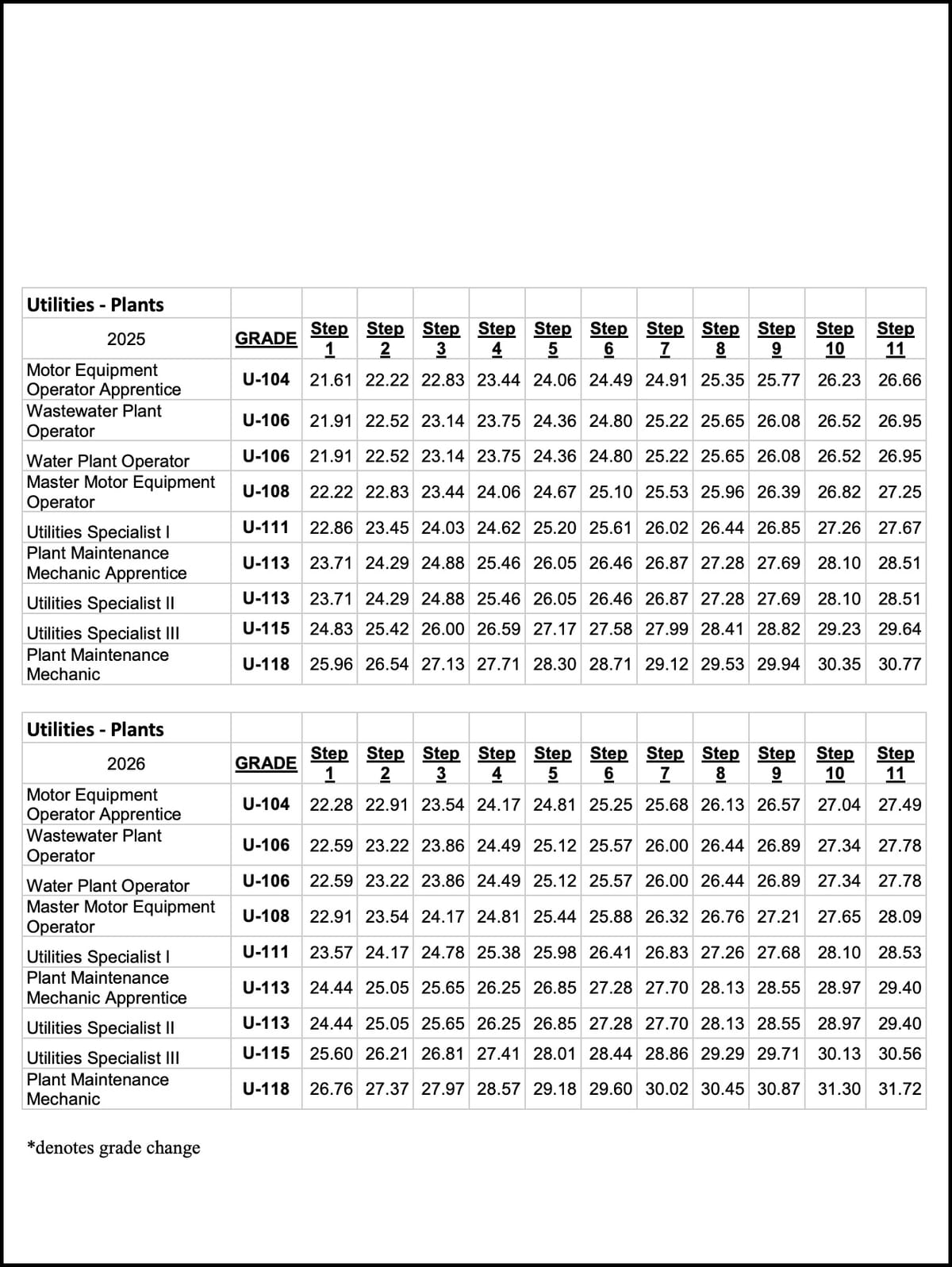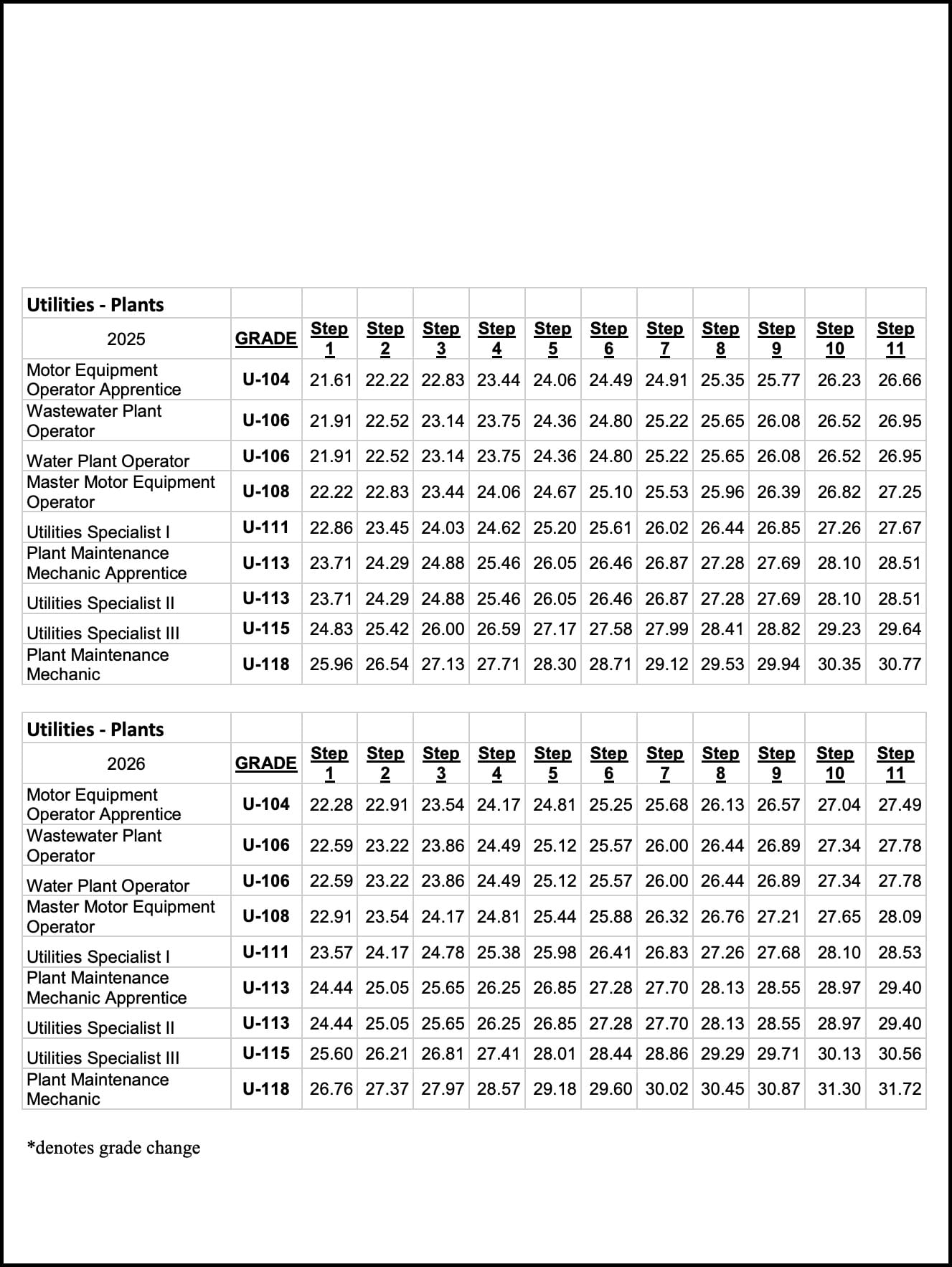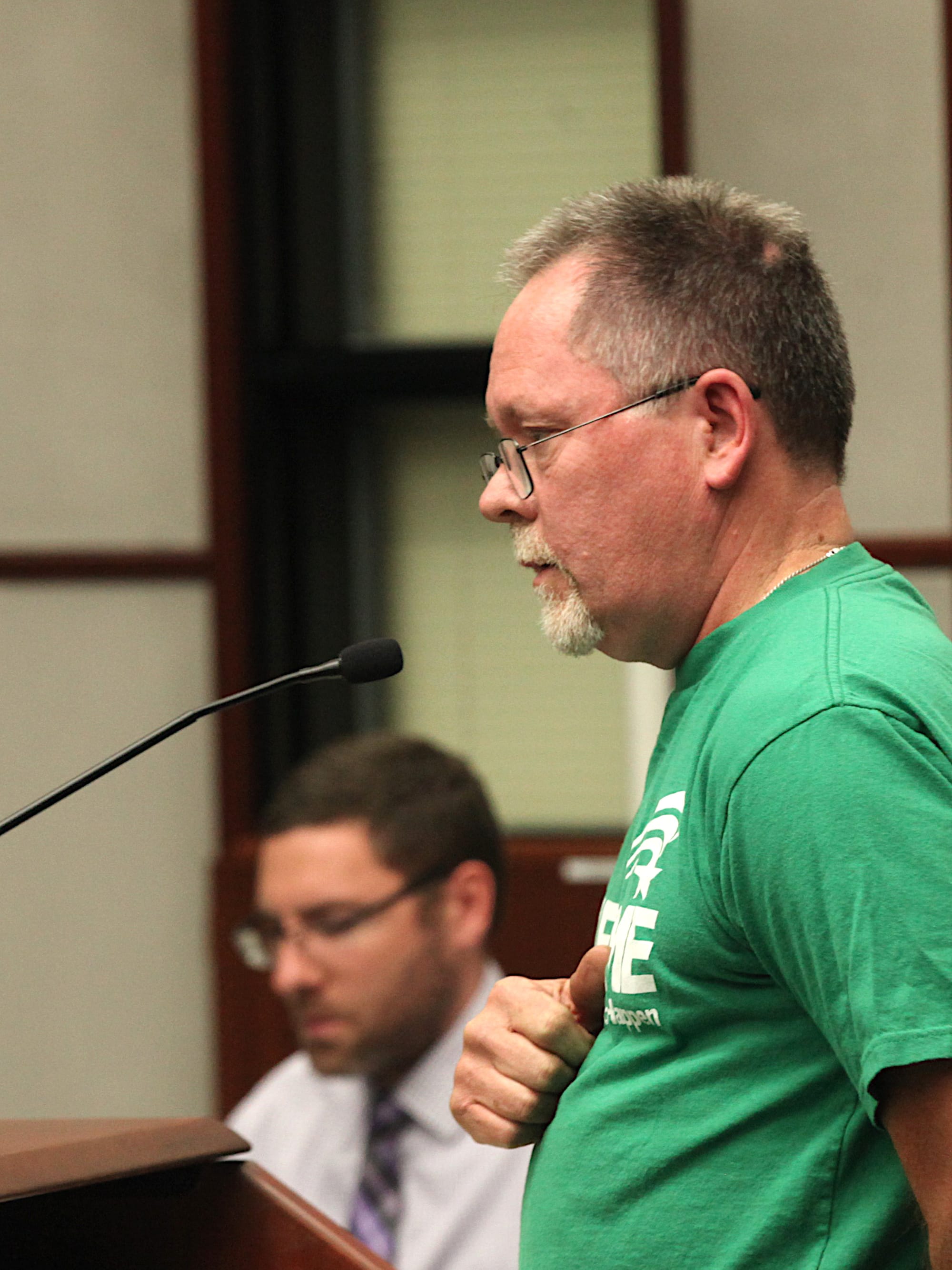AFSCME pay increases of 5% to 18% in first year OK’d by Bloomington city council in 2023 salary ordinance




The recently approved four-year collective bargaining agreement between the city of Bloomington and its AFSCME union is now covered in the city’s salary ordinance.
At its final meeting of the year, on Dec. 21, Bloomington’s city council approved a change to the salary ordinance that sets pay for city employees next year.
The acronym for the union name stands for American Federation of State, County and Municipal Employees. The union includes workers in utilities, the street and fleet divisions of public works, parks and recreation, sanitation, and the animal shelter, among others.
It’s AFSCME workers who plow the snow, salt the streets and empty the trash carts that residents set out every week.
Based on a comparison of the new AFSCME contract with the previous four-year agreement , in the first year of the new accord, there’s a pay increase for union members that ranges from 5 percent to about 18 percent, depending on the position. [2023-2026 AFSCME contract] [2019-2022 AFSCME contract]
In the second year of the new contract, the pay increase is 5 percent. In the final two years of the contract, which runs from 2023 through 2026, the pay increase is 3.1 percent.
The city council’s action came on a 9–0 vote taken at its Dec. 21 meeting.
The council’s action did not approve the contract—that step had already been completed through negotiations between the union and Bloomington mayor John Hamilton’s administration. The council’s action just put the requirements of the contract into local law.
According to the city of Bloomington news release that announced the agreement, the vote on the contract among AFSCME workers was 62–14 in favor.
Several AFSCME employees attended city council meetings starting in early August, and spoke from the public mic, hoping to put some pressure on the administration to get a deal struck before the 2023 budget was approved.
The city council’s 2023 budget approval came in mid-October. The AFSCME deal did not get a union vote until the end of November.
At the council’s Dec. 21 meeting, councilmember Dave Rollo alluded to the frustration of union employees that the city council had heard during its meetings in August when he said, “We should strive to conclude negotiations of contracts before our budget hearings so that we have a full idea of the impact.”
At the city council’s meeting, human resources director Caroline Shaw told the council that the fiscal impact of the changes to the AFSCME contract for the whole four years was $7.27 million. The total estimated fiscal impact of the first year, in 2023, is around $1.12 million, Shaw said. .
Compensation for AFSCME workers is set in the same ordinance that specifies salaries of all employees who are not in the police or fire unions. Under that same ordinance, non-fire and non-police city workers who are not members of AFSCME are receiving a 5-percent increase this year.
The compensation for some AFSCME workers is a straightforward calculation of 5 percent for the first two years and 3.1 percent for the second two years:
| Grade 101 Parks & Rec Custodian (Step 1) | Year | Rate | Increase |
| 2022 | $18.61 | ||
| 2023 | $19.54 | 5.00% | |
| 2024 | $20.51 | 5.00% | |
| 2025 | $21.15 | 3.10% | |
| 2026 | $21.80 | 3.10% |
But for workers in city of Bloomington utilities (CBU), the job grade classification for certain AFSCME positions has been changed under the new contract—which gives those positions more than a 5-percent increase in the first year.
For example, under the previous contract, a heavy equipment operator with a Grade 108 position in transmission and distribution is assigned a job grade of U-118 under the new contract.
A Step 1 Grade 108 position under the previous contract in 2022 paid an hourly rate of $19.55. Under the new contract, in 2023, a Step 1 Grade U-118 position pays $23.98. That’s an increase of about 18.5 percent.
At a Dec. 12 city council work session, which included the topic of the AFSCME contract, city attorney Mike Rouker put it like this: “[U]tilities, of course, has a little bit more flexibility in terms of how much they can pay their employees, because they are funded by ratepayers as opposed to property tax revenue.”
If CBU needs additional revenue to cover costs, then a case can be made to the Indiana Utility Regulatory Commission, Rouker said.
Rouker continued, indicating that the reason that CBU wanted to change some of the job grades was due to employee departures due to lack of enough pay. “[CBU] has seen some ‘retention issues’, I think is the right way to put it,” Rouker said.




Comments ()